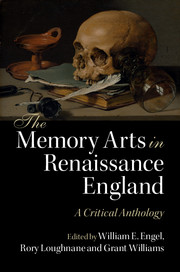PART IV - History and philosophy
Published online by Cambridge University Press: 05 August 2016
Summary
Whilst the Cardinal was speaking, the Earl chafed and changed colour, and sundry proffers made to answer every sentence as it came: at last he break out, and interrupted him thus: ‘My Lord Chancellor, I beseech you pardon me, I am short witted, and you I perceive intend a long tale: if you proceed in this order, half my purgation will be lost for lack of carriage. I have no school tricks, nor art of memory: except you hear me while I remember your words, your second process will hammer out the former.’
– Raphael Holinshed, Chronicles (1577), F5vOf all studies, the study of history seems to be most excellent. Hence even the scripture itself is for great part historical; that the hearts of people might be the better taken with it, and delight in it. Of all histories, the history of men's lives is the most pleasant. Such history, amongst many commendations that may be given to it, this is not the least, that it can call back times and give life to those that are dead; and like a landscape give a lively discovery of the actions of the grandees in former ages.
– John Beadle, The Journal or Diary of a Thankful Christian (1656), H4rThe memory is a faculty whose nature is as obscure, and hath as much of riddle in it as any of the former. It seems to be an organical power, because bodily distempers often mar its ideas and cause a total oblivion. But what instruments the soul useth in her review of past impressions is a question which may drive inquiry to despair.
– Joseph Glanvill, The Vanity of Dogmatising (1661), D8v- Type
- Chapter
- Information
- The Memory Arts in Renaissance EnglandA Critical Anthology, pp. 183 - 184Publisher: Cambridge University PressPrint publication year: 2016



